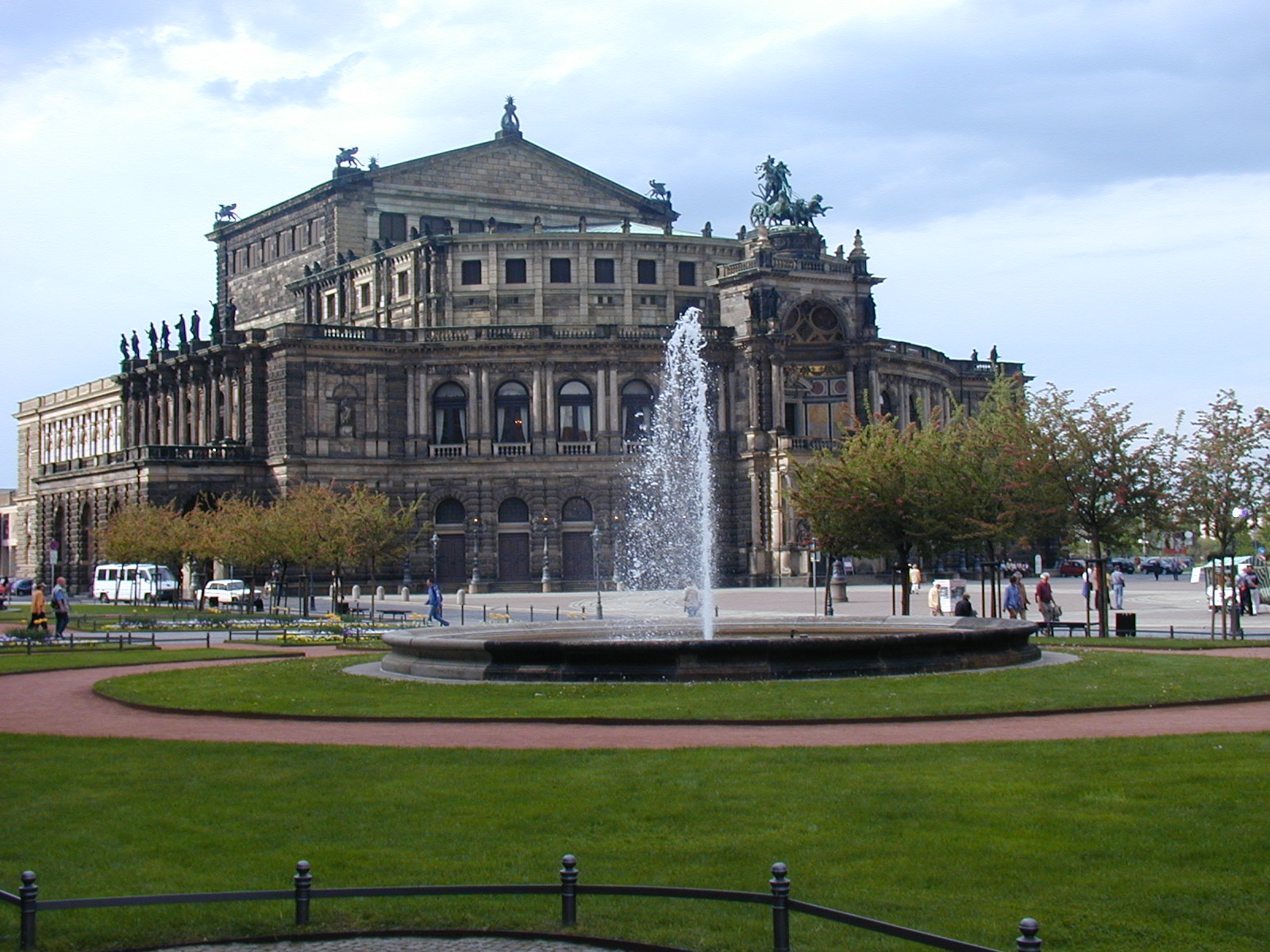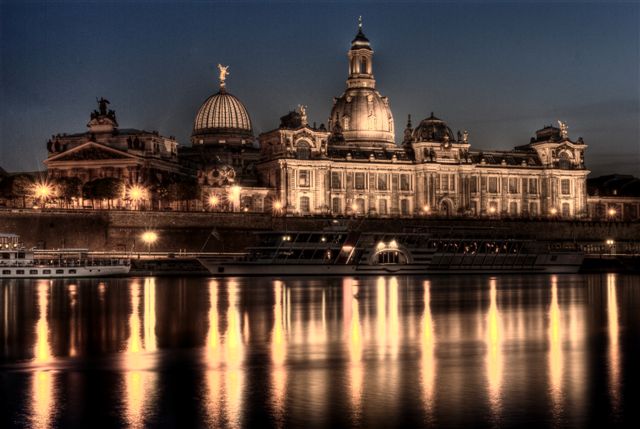General Information
Climate
Dresden lies in a transitional region between a cool, moderate climate and a continental climate. Most of the urban area lies in the Elbe valley and has a mild climate. During the summer months, maximum daily temperatures reach an average of 22-23 °C.
Visa
 Foreign nationals require a valid passport or other identification document to enter Germany. The passport must be valid for at least another four months after entry into Germany or the Schengen area. For citizens of EU countries a valid identity card is sufficient. Children must be included in their parent's passport or carry their own children's passport. Citizens of certain countries require a visa to enter Germany. The German Embassy can provide detailed information.
Foreign nationals require a valid passport or other identification document to enter Germany. The passport must be valid for at least another four months after entry into Germany or the Schengen area. For citizens of EU countries a valid identity card is sufficient. Children must be included in their parent's passport or carry their own children's passport. Citizens of certain countries require a visa to enter Germany. The German Embassy can provide detailed information.
More information are available also here.
Time Zone
Dresden is in the Central European time zone (+1 GMT). Daylight saving time lasts from the last Sunday in March to the last Sunday in October. During this time, clocks are set back one hour.
Electricity
The normal household voltage supply in Dresden is 230 Volts (alternating current).
Currency
EUR
Banks, bureaux de change
The legal tender in Germany is the Euro. Besides exchange offices, all large banks have numerous branches in the city. The travel bank in Dresden is also worth recommending. Cash machines are always available outside of bank opening hours.
Shopping
Shops in central Dresden are usually open Monday to Saturday from 10am to 8pm. The Altmarkt-Galerie in the centre of Dresden is open until 9pm. Large supermarkets and shopping centres are open until 10pm. On Sundays, shops are closed, with some exceptions such as bakeries, train stations and petrol stations.
Local Transport
Dresden has a very well developed public transport system. Trams and buses in the city centre are operated by the Dresden Transport Services and regional transport is taken over by the Oberelbe Transport Services.
Tickets can be bought on board the trams and busses, at stops and at service points. Riding without a valid ticket will result in a fine. City trains also run in Dresden and the surrounding area. Travel centres in the Dresden Hauptbahnhof (main train station) and in Dresden-Newstadt will provide you with further information.
The City of Dresden possesses ideal connections by rail, road, river and air both with its immediate surroundings but also with more distant destinations. Additionally, Dresdeners and their guests are offered an efficient transport network within the city.
 • by plane
• by plane
Dresden International Airport is located 9 km north of the city centre. Flights are operated to the most important larger German and European cities. The current flight schedule confirms that Dresden can rightly call itself a gateway to the world: 42 destinations in Germany, Europe and North Africa can be reached by direct flights.
Over the past few years Dresden Airport has developed into a modern travel centre. Substantial expansion of the infrastructure has permitted constant further improvement of the services offered to travellers, which in turn is convincing an ever increasing number of passengers and air travel enthusiasts.
You can reach the conference site from the airport:
• by suburban rail (S-Bahn) to the central railway station in Dresden (approx. 23 min.) and to the Dresden-Neustadt railway station (approx. 14 min.)
• by taxi to the city centre in 15 to 30 minutes, depending on the time of the day, taxi rank in front of the terminal building (fare approx. 13 -15 Euro)
• by car
Dresden can be reached directly on three motorways.
The A 4 approaches the city from the West (Cologne-Eisenach-Chemnitz),
and the A 13 from the North (Rostock-Berlin). The A 17 links the Saxon capital with Prague.
• by railway
Dresden is an important railway junction within the ICE and EC/IC networks of the German Railways (DB). Several services daily to all major German cities. All EC/IC/ICE trains stop at the Dresden central railway station and in Dresden-Neustadt. Direct international connections include services to Aarhus, Budapest, Bratislava, Prague, Vienna and Zurich.
• by bus
A fast, inexpensive and direct coach link between the bigger cities and Dresden's railway stations is provided by several suppliers. Comfortable, air-conditioned coaches operate several times a day in each direction, stopping directly at the airport terminals
back to top